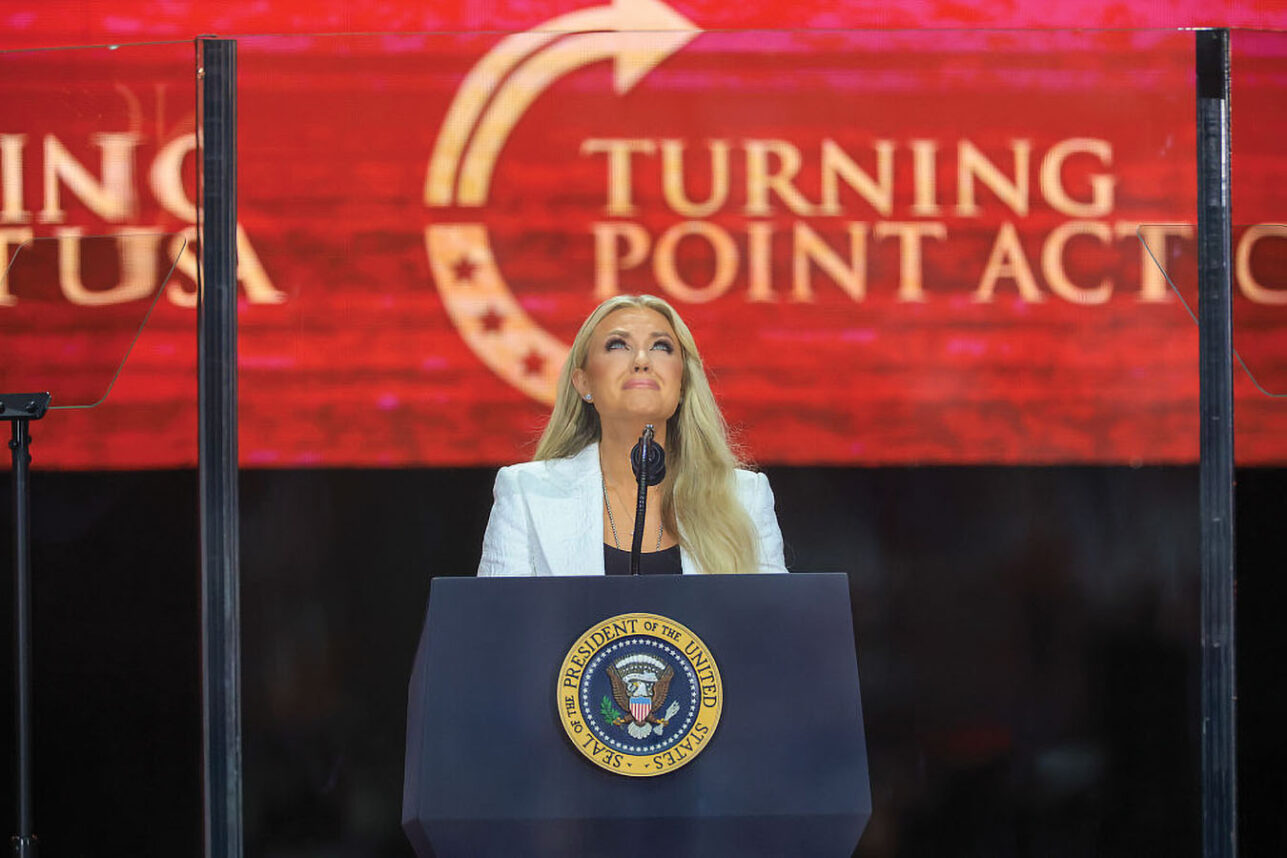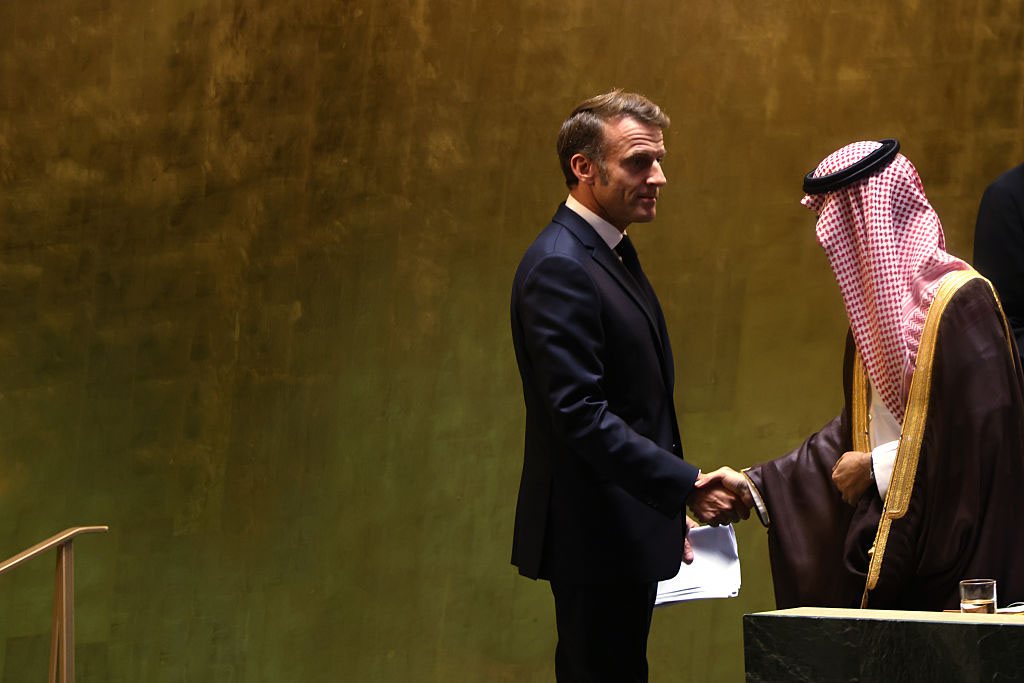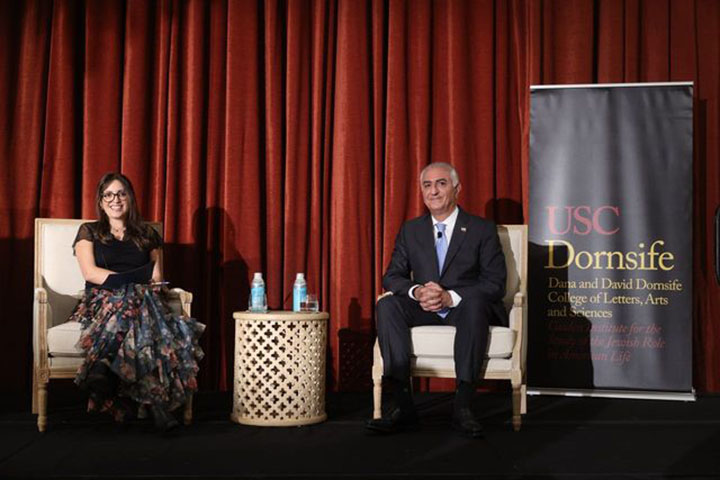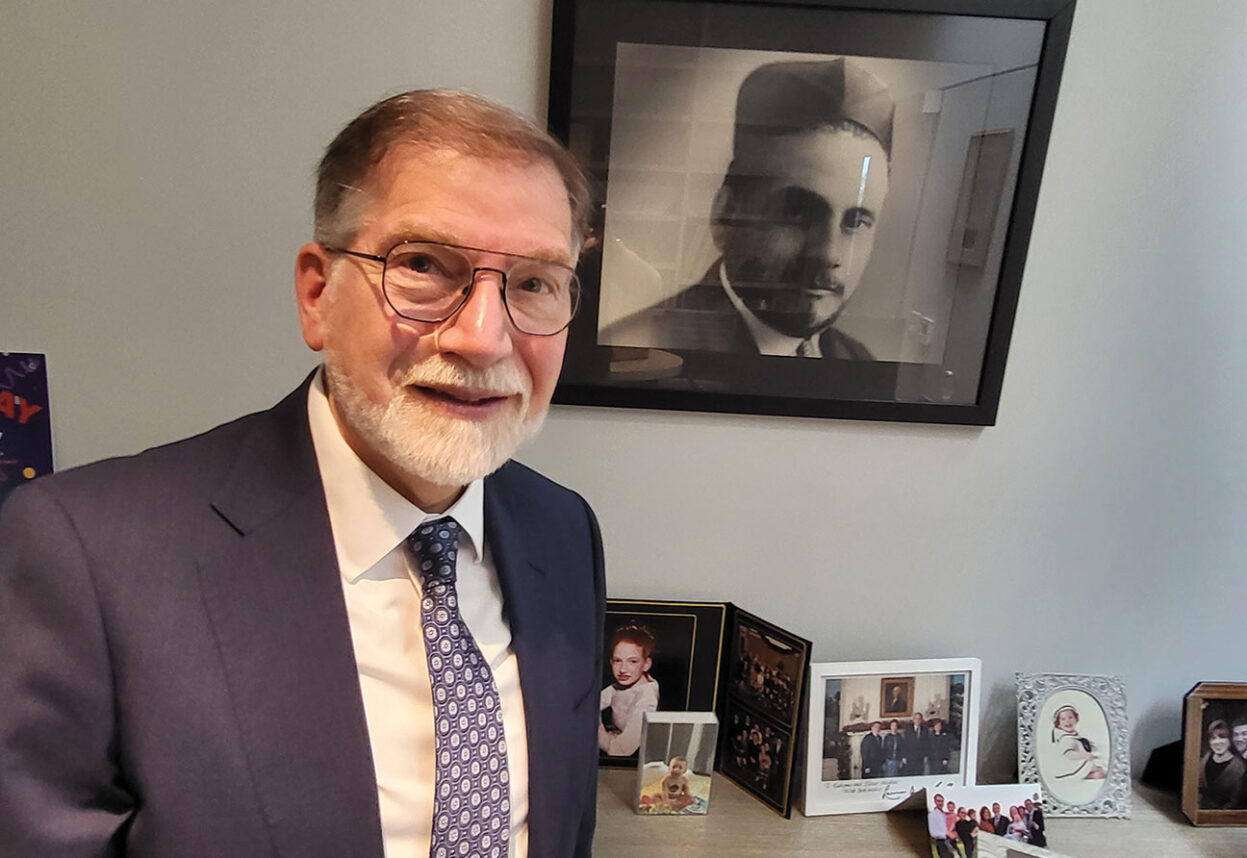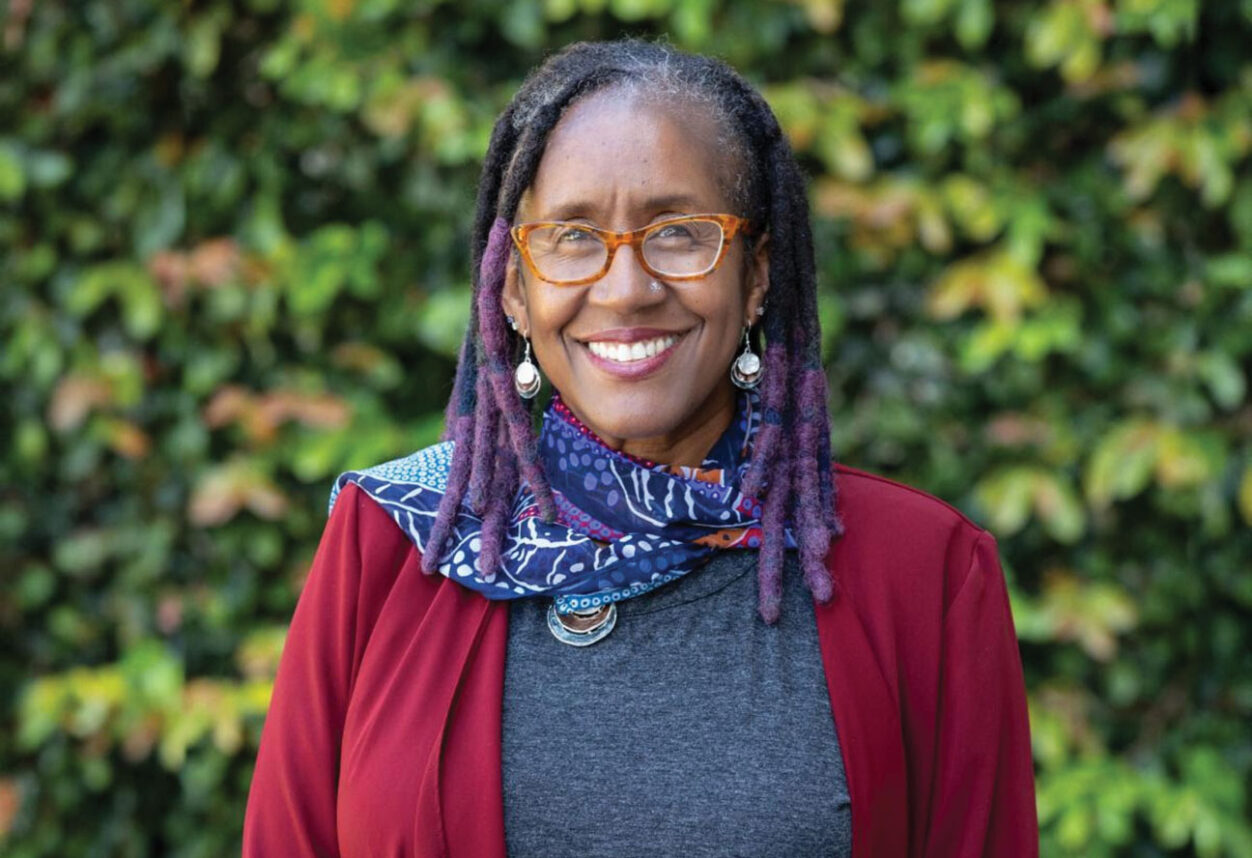
If you were the lead investor for a Jewish foundation with anywhere from $80 million to $1.3 billion in assets, how would you invest? The answer is simple: Invest in companies that provide for long-term, low-risk growth of your principal while also aligning with the mission of your foundation. In other words: Make the most amount of money with the least amount of risk all while ensuring that your investments support the values you believe in.
One way to do this is to invest in Israel, but there’s still a major misconception about what this means. It used to be that investing in Israel was about propping up a fledgling country, but those days are long gone. Sure, investing in Israeli companies does help Israel, but that’s not what’s driving savvy investors to put their money there. Yet few Jewish foundations and Federations are investing in Israeli companies, which means they’re missing an important opportunity to grow their portfolios while strengthening a key part of their philanthropic mission. Investing in Israel offers not only the potential to generate wealth but also to redefine what we mean by philanthropy—all while supporting the Jewish people.
The facts speak for themselves. Israel’s stock market has significantly outperformed the U.S. market since Oct. 7, 2023. The TA‑125 gained 46% (including dividends), while the S&P 500 returned 40% during the same interval. In 2025 alone, Israel’s gains (34.6%) far exceed the U.S. (10.9%). In a global context, Israel has been among the top five best performers worldwide, dominating the MSCI World, Dow Jones, and FTSE-100 in 2024 (Times of Israel). It’s one of the fastest rising economies in the world now, even and especially post-Oct. 7. Ongoing military challenges may give some pause, but Israeli markets have staged a remarkable rebound that has been consistently maintained.
Israel has all the elements of a strong economy. So why don’t people understand just how good it is? Many are still locked into the idea that Israel bonds are the place to be, but “Israel is an evolved economy,” says Selwyn Gerber, Founder and Chief Strategist at RVW Wealth LLC. He believes it’s “ignorance” that is preventing people and organizations from prioritizing investing in Israel. “People react to headlines, many of which can be scary,” says Gerber. But “investing according to headlines,” which are often volatile, “is a very bad way to invest. The flavor of the month is for ice cream, not portfolios. Most people just don’t know enough to understand the fundamentals,” and so investing in Israel is “still seen as risky.” But Gerber says “there’s no reason it shouldn’t be in every portfolio,” and foundations especially should have an Israeli option.
People with their finger on the pulse of investing, like Bill Ackman—who along with his wife Neri Oxman purchased a 4.9% stake in the Tel Aviv Stock Exchange in January of 2024 and saw an 80% return in only ten months—know it’s true. And the big tech funds in Silicon Valley take it for granted. As of 2024, U.S. venture capital fund Andreessen Horowitz, managing $45 billion, has become one of the most active foreign investors in Israel, investing in seven new Israeli companies in the past year. Marc Andreessen goes so far as to say that if Andreessen Horowitz was ever to expand, office number two would be in Israel. Other big funds active in Israel in the past year include Lightspeed Venture Partners with six new investments, and Insight Partners, Index Ventures, and Bessemer Venture Partners with five new investments each. Tech columnist Hillel Fuld even asks whether, with record-breaking investments in Israel’s economy and geopolitical tensions at an all-time high, this the beginning of a new era.
It’s become crystal clear that the future is Israel. And while Jewish foundations and Federations, many of which are in fact sitting on investment funds of nearly one billion dollars (and more in some cases), have been reticent to put their money into Israel outside of charitable donations, it’s time for them to change course.
In an interview with the Journal, former Wall Street pro Michael P. Lustig, who has written about the need for foundations to make sure that their investments align with their philanthropic goals, suggested that there is a disconnect in the way some foundations see the Israel of the past versus the Israel of today. “If you’re a grant-making body that has always viewed Israel as a recipient of funds for grant making purposes, you don’t think of it necessarily as this thriving place where you can invest.” For Lustig, the problem is that there’s a very “ingrained approach that is, to some degree, also just inertia, where you have investment communities that have been doing something a certain way for decades.”
In other words, if something isn’t broken, it doesn’t need to be fixed. Or does it?
“I remember when Israel was a third world country,” he said. “And you don’t invest in a third world country … it’s not where people naturally go to invest. And for whatever reason, the people who control the purse strings of investments have not changed their thought process and don’t realize that Israel is a thriving economy. It’s in the top 10% upper decile of GDP per capita in the world.” Israel is a thriving economy with an “incredibly vibrant tech ecosystem that lends itself to some very, very lucrative investments, if you just put diversified money to work.”
Israel is a thriving economy with an “incredibly vibrant tech ecosystem that lends itself to some very, very lucrative investments…”
Lustig believes so strongly in investing in Israel that he—along with Yael S. Simon and Ruthie Rotenberg of Arakura Consulting, Moshe Bellows of Maccabee Ventures, and Israel’s Special Envoy for Trade and Innovation Fleur Hassan-Nahoum—recently organized their first investors summit (AMPLIFY) in Israel. The summit was highly curated for 15 Chief Investment Officers of U.S. philanthropic foundations, Jewish Federations, Jewish community donor advised funds, and family offices with assets over $100 million. At the summit, attendees had direct access to Israel’s premier tech innovators, VCs, and PE firms and were given a crash course in types of investments and develop relationships needed to be able to start investing in Israeli companies. It’s a networking dream when it comes to investing. The next summit—taking place Dec. 7-9 with 20-25 spots—will include speed networking to further maximize the opportunity to connect with as many people as possible. Attendees will network with people including: Andrew Abir, Deputy Governor of Bank of Israel; Bruce Taragin, Managing Director of Blumberg Capital; Sender Cohen, Managing Partner at KH2 Capital; Lee Moser of Protego Ventures; Guy Cherni of ClimateFirst; Avi Hassoon, CEO of Startup Nation Central; Chen Smilo of 8200; and Samer Haj Yehia, former Chairman of Bank Leumi among many others. With a partnership in place with itrek to cover the summit expenses for CIOs from Federations and other Jewish community donor advised funds, it’s a no-brainer. AMPLIFY delegates also have the opportunity to use the AMPLIFY OnePass, giving them access to additional investor events happening in Tel Aviv the same week.
The goal of the summit is to help investors build relationships with the right people in order to develop their portfolios. While some Jewish foundations are already supporting Israel philanthropically, some do not have the means for it. But they can also support Israel by putting a percentage of their portfolio into Israeli companies, while not lowering their investment standards. Investing in Israel and ensuring that there is a strong economic Israel only gives foundations more money to support their philanthropy.
AMPLIFY addresses two problems in the world of Jewish foundation investing: a lack of exposure to the right opportunities and a lack of connectivity. Institutional portfolios are lacking when it comes to Israel, one of the world’s most dynamic innovation economies. They are missing out on its “unparalleled blend of technological leadership, market resilience, and outsized growth potential.” AMPLIFY offers foreign institutional investors the chance to overcome traditional obstacles in accessing premier investment opportunities by helping them to “efficiently navigate the local ecosystem and build rewarding relationships.”
Institutional portfolios are lacking when it comes to Israel, one of the world’s most dynamic innovation economies.
Moshe Bellows, one of the founders, has been involved with Israel since as long as he can remember. His family has a long history with Menachem Begin, and Bellows was “weaned” on the idea that Israel is a charity that needs to be supported. “It’s part of my DNA,” he says. But when he started running a large healthcare company, as well as a family office for 16 years, he started to think differently.
“As I started being exposed to Israeli founders and the Israeli tech ecosystem, I moved from, oh, this is just what we can give” to the question of “what can we get, and how can we grow?” Bellows says that his mindset needed that shift. “I think our Jewish institutions [as well as] Christian institutions or even investors in general, also need that shift.”
But it’s easier said than done. The shift may be necessary, but it takes longer when you’re not intimately familiar with how it works. “It’s other, it’s foreign, literally and figuratively.” Bellows ultimately started Macabee Ventures, an early stage venture fund bridging between North America and Israel, which further drove home the need for more education when it comes to investing in Israel.
“I’m sitting there in this collaborative ecosystem, and they kept coming to me, and all these companies had contracts with Israeli companies but they had never been there, and so I was doing all their due diligence, and one day, the light bulb went off, and I said, ‘I’m doing you a disservice. I’m doing Israel a disservice. I will not do your due diligence anymore, but I will send you to Israel.’”
After Oct. 7., “some of these funds bubbled up in Israel, like Iron Nation Fund and others,” says Bellows. “But I have been looking at the data over decades, and the data shows that family offices, foundations and Federations are underweighted” when it comes to investing in Israel. It always bothered me, and I didn’t understand why.” Bellows spoke with Rotenberg and Simon and the three explored the question of why. “I think the why is a lack of familiarity, it’s a lack of access, it’s a lack of trusted network.”
The AMPLIFY Investor Summit became the solution. It’s a conference that’s curated, tailored, and strategic for family offices, foundations and Federations. “If we can bring 100 million to a billion more dollars to Israel, that would be our life’s work,” says Bellow. While many people know that Israel is a top three ecosystem and that they should allocate there, they just don’t know how to get started. Israel is a small country, and so “once you meet 10, 20, 30, 40 people in the ecosystem, that’s your entry.” It’s like a party that you walk into, says Bellows. “If you come with a couple of trusted people into that ecosystem, you’re welcomed with open arms … And so that’s the experience that we wanted to provide.”
For those who remain locked into the traditional model of charity when it comes to Israel, investing in Israel still checks that box. By investing in Israeli companies, thousands of jobs are created. “Teach a man to fish, right?” says Bellows. The many visits to Israel that are being facilitated are another key component. “Think about those thousands of people and the companies that they’re doing business with now coming to Israel, staying at hotels, eating at restaurants.”
For those who remain locked into the traditional model of charity when it comes to Israel, investing in Israel still checks that box.
But the biggest question for Bellows is: What’s the impact? When jobs are created, we’re contributing to the social good. If it’s security and defense tech or health tech, then we’re “creating solutions to the biggest problem in our in the world today.” At AMPLIFY investors are given “exposure to world class institutions and folks that are literally changing the face of technology, of health, defense, and agriculture tech.” One example is drip irrigation, which Israel exports to Africa that results in millions of meals. Another is cancer research and innovative treatments that can save countless lives. And then there’s Eleos Health, a company that develops AI for behavioral health and has saved therapists many years of wasted time with their technology. “Imagine if a Federation gets to say they’ve allowed there to be a million more therapist hours in the world.” The examples are endless. Consider the donor who pays $250,000 for a program for one year. “But imagine if I took that $250,000 and invested in the company that’s doing the same thing, and then I get a return, and I’m still touching those lives. It’s the gift that keeps on giving.”
The events of Oct. 7 made many things clear to the Jewish community. But perhaps more than anything, we now understand that in order to fulfill their missions, Jewish foundations need a strong Israel. For this reason, it’s imperative that foundations invest in Israel—and not just through the traditional method of Israel bonds. Foundations don’t need to lower their investment criteria; they can elevate it both financially and ethically by investing in Israeli companies. Jewish foundations and local Jewish Federations across the U.S. are sitting on enormous assets. Why not follow the lead of savvy investors like Ackman, Sender Cohen, and others and invest in Israel, thereby strengthening Israel, building assets, and ensuring that investments align with the philanthropic missions devoted to Jewish identity and fighting antisemitism?
The Journal reached out to Jewish Federations of North America (JFNA) to get a sense of why there is still reticence on the part of many Federations to invest in Israel. Rebecca Caspi, Director-General of JFNA’s Israel Office, confirmed that financial investing in Israel is “a great way to support the Jewish state, which is why we offer our Federations training and support on impact investing through our Jewish values.” She also agreed that “conferences like [AMPLIFY], which raise awareness and help bring additional investment capital to Israel, are vital and strategic.” But for Caspi, the Federations’ “most profound influence in Israel” is still “through the targeted, high-impact philanthropic contributions” they have been making for over 100 years “to build the Jewish state and support its people through good times and bad, including over $900 million in emergency funding since Oct. 7th that has gone to support essential lifeline services, medical and trauma relief, economic recovery and support, and community resilience and rebuilding.” These contributions are undeniably important. But why not prioritize investment strategies that grow portfolios even more to further enable this philanthropic mission?
The investment opportunities curated by AMPLIFY are on par if not better than what we are seeing in the U.S. with the bonus of strengthening Israel, which strengthens the philanthropic mission of Jewish organizations. It’s a different lens. “We’re trying to change the mindset of these foundations and Federations to stop seeing Israel” as a place only for philanthropic investing, said Rotenberg. “Send your CIO here (even an outsourced one) and/or head of your investment committee here to help you build the relationships needed to develop an Israel investment portfolio.”
Israel’s stock market is at a record high. As Jacob Sivak points out, “Israeli stocks have surged 200 percent from a post-Oct. 7 low. Participation in retail investment has surged, along with foreign investment in Israeli equities, the latter driven largely by increased investor confidence in Israeli technology and defense sectors … Additionally, as World Bank data show, Israel spends more on research and development, by far, than any other country. The amount, six percent of GDP, is double the average for the 38 OECD countries.” The days of the blue Israel donation box being passed around are over. Google, for instance, recently acquired Israeli-founded cybersecurity company Wiz for $32 billion.
The days of the blue Israel donation box being passed around are over.
Some foundations already doing this—the Russell Berrie Foundation and Schusterman come to mind—but the chasm of missed opportunity when it comes to large Jewish foundations is wide. With rising antisemitism across the world and the increase of economic pressure on Jewish institutions, it’s even more important now that foundations know where their money is going, and that their investments are not working against their philanthropic mission. AMPLIFY is a great opportunity for this. It began with three old friends—Rotenberg, Simon and Bellows—with diverse networks who believe in the importance of investing in Israel. They want to help facilitate change in the world of Jewish investing and believe they can because they are not constrained by institutional affiliations. A new paradigm is emerging: one that recognizes both the moral imperative and financial opportunity to ensure investment strategies that strengthen their mission. Now is the time to invest in Israel.
The AMPLIFY Summit is open to Chief Investment Officers of family offices, foundations, and Federations (min $100M AUM). Registration for AMPLIFY and more information can be found here. Jewish Federation and community DAF CIOs can register for the itrek grant and program here.
Monica Osborne is a former professor of literature and Jewish studies. She is Editor at Large at The Jewish Journal and is author of “The Midrashic Impulse.” X @DrMonicaOsborne









